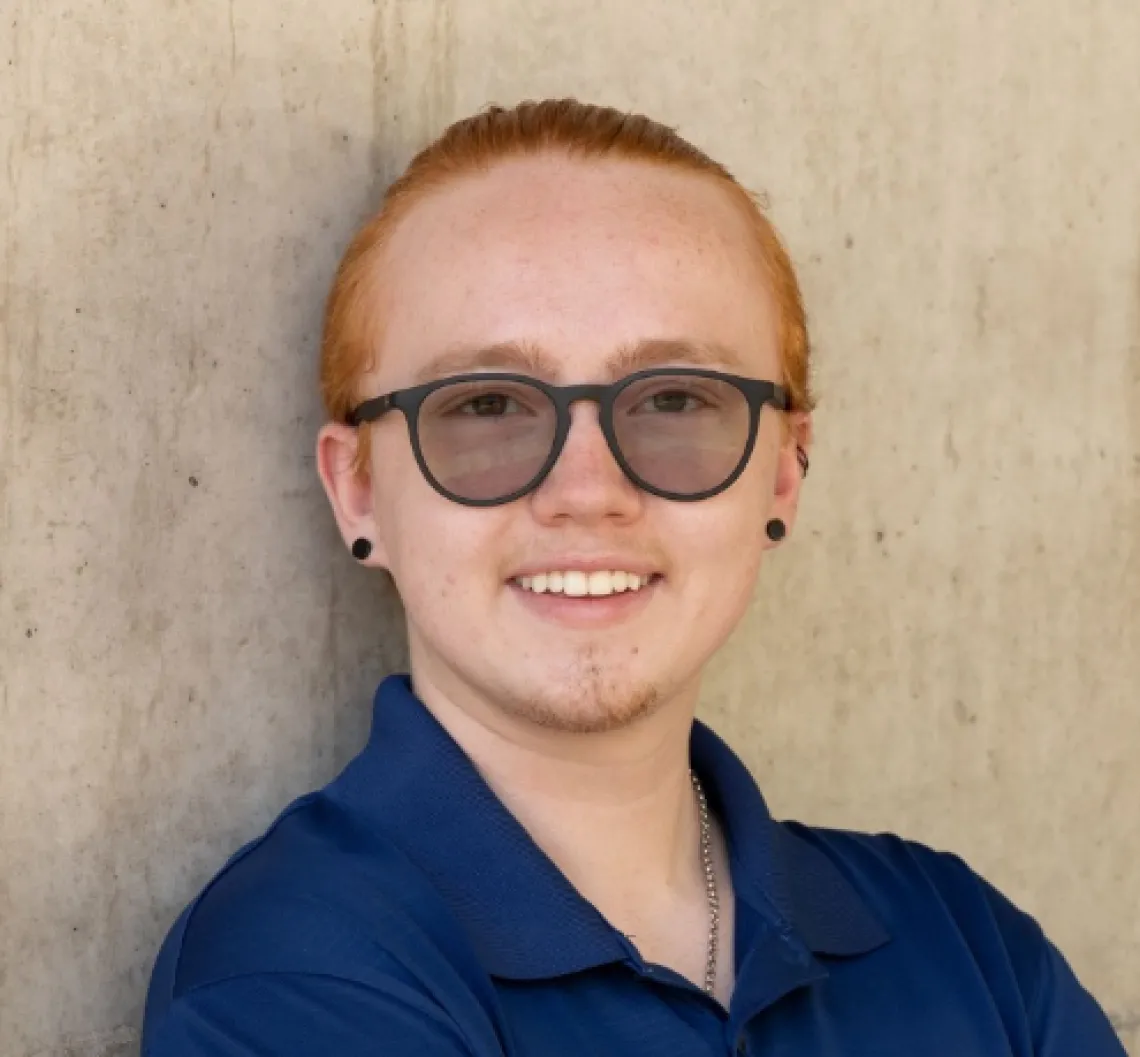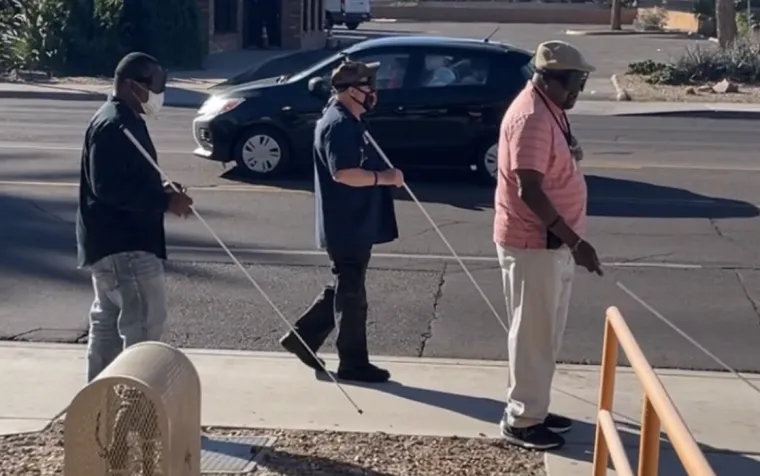The CACTI Blog: SAAVI Services for the Blind - Building Confidence into the Community

Austin Randall
By Austin Randall, 2022-2023 Undergraduate Certificate in Developmental Disabilities
During Spring 2023, I had the opportunity to work with SAAVI (Southern Arizona Association for the Visually Impaired) Services for the Blind, a non-visual training service program to establish independent life skills. SAAVI works with students of all ages to provide them with confidence and non-visual techniques to prepare them to return to the workforce, pursue higher education, or enter a new career path.
The history of blindness as a disability dates back to ancient times. In many cultures, blindness was seen as a punishment from the gods, and blind people were often excluded, persecuted, and marginalized from society. In the 19th and early 20th centuries, advances in education and technology led to greater recognition of the potential of blind people. Blind schools were established, and Braille was invented, providing blind people with new opportunities for education and employment. In the mid-20th century, the disability rights movement emerged which advocated for the rights and needs of disabled people. The movement helped to bring significant changes to legislation, such as the Americans with Disabilities Act (ADA). The ADA is a civil rights law that prohibits discrimination against disabled people in employment, education, and public accommodations. By understanding the historical roots of these attitudes, we can work to break them down and build a more positive, inclusive image of disability. With this knowledge and background, the students at SAAVI can work together to grow their personal mindsets around their disability identity. Our goal for the students is to build connections to the greater disability community.
My work with SAAVI focused on the Orientation and Mobility (O&M) program where students learn cane skills, environment safety, traveling techniques, and self-determination. Adults enrolled in the Comprehensive Day Program attend a variety of classes for an average of 9 months full-time. Classes include Braille, Orientation and Mobility, Access Technology, Independent Living Services, Philosophy, and Job Readiness. Many students in this program are also enrolled in additional services such as Health and Wellness, Remedial Education, Program Advisory, Advocacy, Tutoring, English as a Second Language, and Counseling. I work one-on-one with students on O&M and also attend the Philosophy class with the students to gain further insight into their disability philosophy outlook and self-identification.

Disability philosophy provides a framework for understanding disability as a social and cultural phenomenon, rather than just a medical one. This perspective helps to challenge the traditional view of disability as a personal tragedy or individual problem. Instead, we recognize the impact of societal attitudes and structures that create barriers to inclusion and equity for disabled people. Holding this class in a group setting allows for the students and staff to share lived experiences, personal perspectives, and advice for each other as we all learn more about ourselves and our environment through the program. SAAVI challenges ableist assumptions that devalue and exclude disabled people and helps to create a more inclusive and representative environment. Many topics in the Philosophy class touch on advocating for the rights of disabled people, the social-emotional impact of stigma and prejudice, and ways to navigate uninformed service providers or individuals within the community. It provides a critical perspective on the social, cultural, and political aspects of disability. By promoting inclusion, diversity, and accessibility, disability philosophy can improve people’s quality of life through improved access, mental health, and worldly understanding.
My experience with SAAVI has brought me to a broader understanding of disability and allowed me to practice working with students on a case-by-case basis, as well as in group settings. Being involved in the Philosophy classes has provided me with great experience in discussing the psychological concepts I learned about in my undergraduate degree. It was quite a rewarding experience as I was able to learn and develop my skills alongside my students. The work that SAAVI does with advocating for disability rights is exactly in tune with my personal passion for fighting for change and improving an inequitable society.
Learn more about SAAVI Services for the Blind here:
https://saavi.us/about-saavi/mission-vision-and-values/
Image Credits: https://www.facebook.com/GetSAAVI/
The CACTI Blog features the voices of our interdisciplinary trainees and Community Advisory Council members as they highlight diverse images of people with disabilities and provide community information and advocacy on disability issues. Check Out The CACTI Blog
